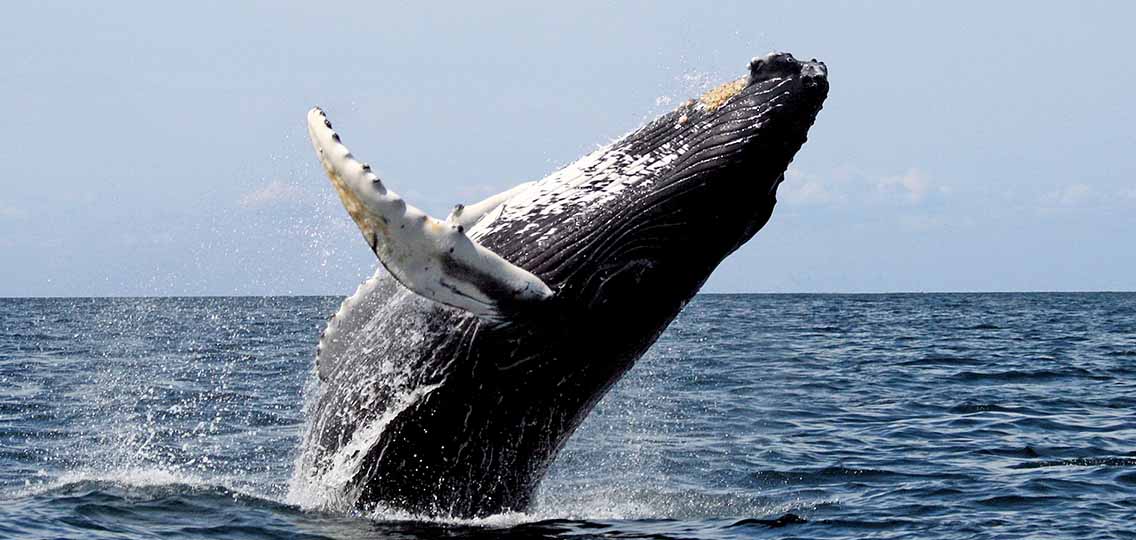Exploratory oil and gas drilling threatens marine ecosystems and climate targets
ST JOHN’S, N.L./TRADITIONAL TERRITORY OF THE BEOTHUK AND MI’KMAQ – Environmental groups are launching an appeal to protect marine ecosystems off the coast of Newfoundland and Labrador from the harmful effects of unchecked exploratory oil and gas drilling. The groups are appealing a Federal Court decision upholding a Regional Assessment (RA) of exploratory oil and gas drilling in the region and the regulation exempting future projects from further scrutiny.
Lawyers from Ecojustice, representing the Sierra Club Canada Foundation, World Wildlife Fund Canada, and Ecology Action Centre, filed the appeal yesterday with the Federal Court of Appeal.
The groups say an increase in exploratory activity in Newfoundland and Labrador’s offshore waters threatens important marine ecosystems while also damaging Canada’s ability to reach net-zero emissions by 2050.
The RA being challenged is the first to be conducted under the new Impact Assessment Act (IAA). The groups say the RA did not properly consider the cumulative effects of all exploratory drilling projects in the region and that this flawed RA sets a poor and dangerous precedent for regional assessments, which could otherwise be a promising protective mechanism under the IAA.
The Federal Court dismissed a lawsuit challenging the regional assessment and blanket exemption regulation in December 2021. That decision is now being appealed. The groups released the following statements:
Ian Miron, lawyer, Ecojustice said:
“The Impact Assessment Act is intended to make government decision-making more transparent and improve the assessment process. This assessment failed to adequately scrutinize the cumulative effects of exploratory oil and gas drilling, leaving marine ecosystems off the eastern coast of Newfoundland and Labrador, and the communities that depend on them, vulnerable to unchecked fossil fuel development.
“As the climate emergency continues to escalate, Canada must recognize the harmful social and economic impacts of fossil fuels. An open-door policy to exploratory drilling is inconsistent with the urgent action needed for Canada to meet its critical climate targets.”
Sigrid Kuehnemund, Vice President, Wildlife and Industry, WWF-Canada said:
“The outcome of this case has massive negative implications for marine biodiversity and environmental legislation in Canada. WWF-Canada believes that the judge failed to properly assess the many risks of exploratory drilling to Newfoundland and Labrador offshore habitats and the species that use them. Safeguarding marine ecosystems from the impacts of drilling and ensuring Canada’s environmental legislation remains strong is too important to let this decision stand.”
Jordy Thomson, Senior Marine Coordinator (Ecosystems), Ecology Action Centre said:
“To address the climate and biodiversity crises, Canada needs impact assessment laws that provide the highest standard of environmental protection. The court’s decision to let the deeply flawed regional assessment for exploratory drilling stand instead props open the door for further degradation of our marine environment and global climate. We are appealing this decision to strengthen the Impact Assessment Act and help safeguard sensitive Atlantic marine life.”
Gretchen Fitzgerald, National Programs Director, Sierra Club Canada Foundation said:
“We know that no new oil drilling can be allowed if we are to create a safe climate. We know that fragile marine ecosystems and imperiled species, like the critically endangered right whale, require protection from things like seismic blasting and oil spills. People who participate in assessments deserve to have their concerns assessed and know they are not merely rubber stamp exercises for approving more damage to the environment. This assessment failed on all three fronts and we have no choice but to appeal the decision to uphold it, and to challenge further deregulation of offshore oil and gas it was designed to create a ‘fig leaf’ of legitimacy for.”

